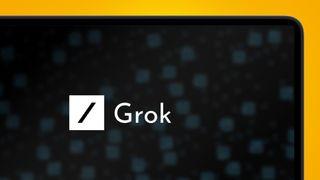ChatGPT Might Finally Face Some Real Competition from Grok
Artificial Intelligence (AI) has made tremendous advancements in recent years, particularly in the field of natural language processing (NLP). OpenAI’s ChatGPT has been at the forefront of this revolution, gaining recognition for its ability to generate human-like text responses. However, a new contender, Grok, has emerged, posing a potential threat to ChatGPT’s dominance in the AI chatbot space.
ChatGPT, built on the GPT-3 architecture, achieved significant success by utilizing a massive amount of pre-training data. It can understand and generate coherent responses, making it seem fairly human-like. Its capabilities have been showcased in various applications, including content creation, customer support, and language translation.
But now, Grok, developed by Quantum Intelligence, offers an alternative with its unique approach. Grok claims to offer a more interactive and engaging conversation experience by incorporating a dynamic memory system. This system allows Grok to remember and recall previous conversation details, leading to improved context understanding and more consistent responses.
Unlike ChatGPT, which relies heavily on pre-training with a vast corpus of text data, Grok instead focuses on incremental training. This means that rather than relying solely on vast amounts of data, Grok can adapt and improve based on feedback from users in real-time. This approach enables faster iterations and more accurate responses, boosting the overall user experience.
Moreover, Grok emphasizes privacy and data security. With growing concerns about AI models inadvertently exposing sensitive user information, Grok tackles this issue head-on. Quantum Intelligence has developed a unique architecture that minimizes data transfer and ensures that user input remains secure. This focus on privacy could be a significant selling point for organizations that prioritize the protection of user data.
However, ChatGPT has its own strengths too. OpenAI’s powerful infrastructure and strong research community have allowed it to refine and enhance ChatGPT continually. OpenAI has been proactive in addressing limitations and concerns related to biases, misinformation, and harmful outputs. This constant development and improvement make ChatGPT a reliable and reliable choice for businesses and developers.
Furthermore, OpenAI has announced its plans to launch ChatGPT as a subscription service. This integration into the OpenAI API ecosystem could provide a more accessible and cost-effective platform for organizations to deploy AI chatbot solutions. By offering a user-friendly API, developers can leverage ChatGPT’s capabilities without investing extensive time and resources in model deployment.
As competition heats up between ChatGPT and Grok, it is essential to recognize that while they provide similar services, their approaches differ significantly. Choosing the right AI chatbot depends on individual requirements, priorities, and resources available. Grok’s emphasis on dynamic memory and data privacy could be attractive, while ChatGPT’s extensive research and forthcoming API integration might be more appealing to others.
the emergence of Grok as a potential competitor to ChatGPT adds a new dimension to the AI chatbot landscape. Both models have distinct advantages, and businesses must carefully consider their specific needs when choosing between them. This competition not only signals progress in the field of NLP but ultimately benefits users by driving innovation and pushing the limits of what AI chatbots can achieve.
Hey Subscribe to our newsletter for more articles like this directly to your email.
